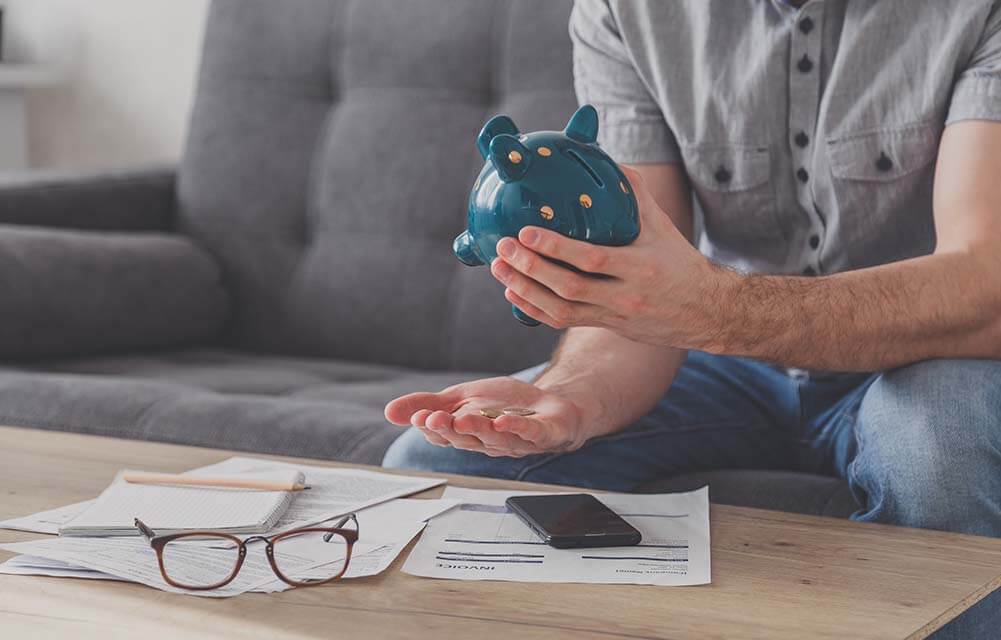When you get a personal loan, you know that you have to pay it back. But life happens. Things like changes in income or unexpected job loss affect the bills we can and cannot pay. In those times, paying for your personal loan may be a simple impossibility. But what happens if you don’t pay a loan company back?
In this article, we’ll look at what it means to leave a personal loan unpaid and how that personal loan can affect your credit score and financial health. If you’re looking to understand how to deal with a personal loan that you cannot pay back—and get your finances back on track—read on!
Personal Loan Default
It’s important to know what happens if you don’t pay back a personal loan. First, it can go into default. Default is a failure to repay a debt based on the terms of the loan agreement. Default happens when you can’t make payments on time, have more than one missed payment, or don’t make any payments at all. A defaulted loan will, without question, harm your financial profile. Here are some general effects of default:
Added Fees and Interest
Not being able to pay a loan doesn’t mean that the loan fees stop. Loans in default (particularly student loans that need to be refinanced) are subject to fees based on the total loan, in addition to processing fees and penalties.
Debt Collection
If you don’t make a payment on your loans for an extended period of time (usually 60 days or more), your lender could use a debt collector. Debt collection agencies are third-party companies that aggressively work to get your money. These companies can be very frustrating to work with, but we’ve got some tips on how to handle them later in this article!
Legal Action (Court Summons)
A collection agency could take you to court to sue you for the debt, regardless of the amount. A judge could rule for a lien against your property or wage garnishment.
Future Financing Trouble
Some loan defaults can stay on your credit report for as long as seven years. These types of items can damage your creditworthiness, which could cause other lenders to deny future loans.
The consequences of default depend on the type of loan.
Default on a Secured Loan
A secured loan is a loan that is backed by some sort of collateral. A mortgage or car loan are two examples of the most popular kind of secured loan. If you miss payments and default on a secured loan, the lender has the right to claim the collateral. For example, a defaulted mortgage could result in the bank foreclosing on the home. Or, an unpaid car loan means that the bank could repossess your car. In both examples, the lender takes the real property to sell the asset and recoup the money lost on your defaulted loan.
Default on an Unsecured Loan
Unsecured loans are essentially lines of credit that you can repay in installments. Examples of unsecured debt include:
- Credit card debt
- Medical Bills
- Student Loans
Unsecured loans tend to take longer to go into default than secured loans.
When you default on those loans, your lender has no collateral to repossess. However, the lender can do many things in their power to try to get their money back.
If you default on a credit card from a bank, the bank could sell your account to a collections agency that uses debt collectors to get repayment from you.
How Default Affects Your Credit Score
Your credit score is a rating that details your overall creditworthiness. Credit scores depend on the contents of your credit report.
Defaulted accounts will remain on your credit report for up to seven years and can affect your credit score.
When a prospective lender sees a default on a credit report, it tells them there is a significant risk in lending to the borrower.
Removing a Default From Your Credit Report
If the default credit information on your credit report is accurate, you may not be able to get the credit bureau to remove it. It is their legal duty to ensure all the data on your credit report is accurate.
If the default is incorrect, you could dispute the entry by contacting the company that supplied the loan. As they own and control this information, it is their responsibility to amend any mistakes.
Dealing With Debt Collectors
Debt collectors are employed to get the money that their collection agency is seeking from you. They are required to follow specific rules, but many unsavory debt collectors can use a borrower’s lack of knowledge against them. Here’s what you need to remember when dealing with debt collectors:
Don’t Avoid Their Calls
Debt collectors will continue to contact you until the debt is resolved. The longer you hold onto a debt, the greater the damage to your credit report and credit score (we’ll talk about that in a bit).
Get All the Information
Before you even consider a payment to a debt collector, you must know everything about the debt they want to collect. Ask about the original creditor, the total amount of the debt, when the first missed payment occurred, and what is currently owed.
While getting this information, be sure that you do not admit that you owe the debt. Acknowledging that you owe anything could reset the statute of limitations on debt that could be expired. In this conversation, be sure only to get information.
Get Everything in Writing
Any reputable debt collector will be able to send you a copy of your account information in a letter. Ask for it. It should contain all the information about your creditor’s claim on what you owe. Additionally, you should also get information on how to dispute the debt.
Negotiate for a Settlement
When you receive your letter, verify that the debt is yours and the amount owed is correct. If it is, contact the collection agency and see if you can reach a settlement—some amount of the debt that you can afford—to close the account. Even if you can’t settle, you should be able to set up a payment plan.
Know Your Rights
No matter what your debt is, you have rights when dealing with debt collectors. Under the Fair Debt Collections Practices Act, debt collectors have to contact you when and how they see fit, and they aren’t allowed to harass or threaten you.
You also have the right to dispute any debt. If you file a dispute within a month of the first contact, the collection agency can’t take any money from you until the dispute investigation concludes.
Some dubious debt collection agencies threaten borrowers with an arrest or jail time. This action is illegal.1 If you get a threat like this, be sure to contact your state attorney general’s office immediately.
Conclusion With CreditNinja
It’s easy to lose hope when debt starts piling up and you start losing control. Sometimes, you start to question whether you’ll ever get back on track.
Some people believe that defaulting on a payday loan can create a life-changing financial experience, and in some cases, this may be true. As someone who has taken out a payday loan and found themselves in default, you may have the opportunity to experience the benefits that this financial problem may bring.
You may come to realize that you need to change your financial habits to avoid a repeat of this situation. The best lesson you can take from a loan default is to be more cautious with your finances and consider the long-range effects of any loan agreement you create. To learn more, check out CreditNinja’s blogs.
References:
Matt Mayerle is a Chicago-based Content Manager and writer focused on personal finance topics like budgeting, credit, and the subprime loan industry. Matt has a degree in Public Relations and has been researching and writing about financial literacy and personal finance since 2015, and writing professionally since 2011.






